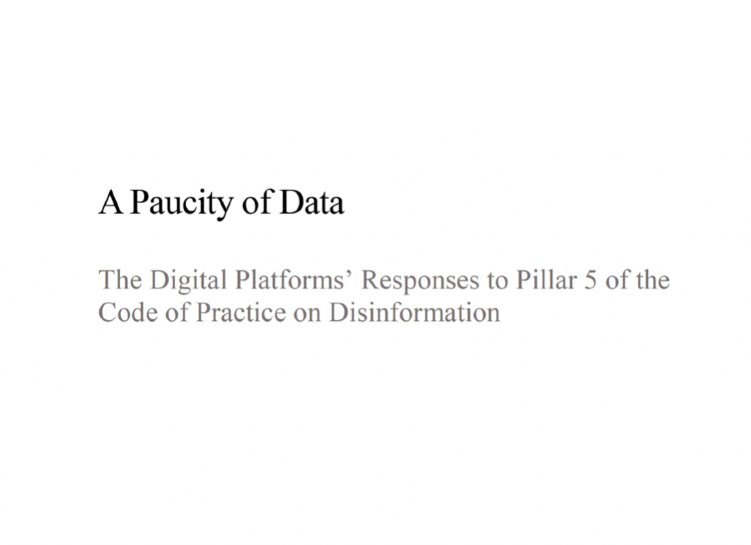In October 2018 the major online platforms signed the European Code of Practice on Disinformation, a self-regulatory framework designed to “address the spread of online disinformation and fake news” across the European Union (European Commission, 2019). Under Pillar 5 of the Code of Practice, Facebook, Google, and Twitter committed to supporting “good faith independent efforts to track Disinformation and understand its impact…” (European Commission, 2018, Chapter II.E., para. 12).
This report provides an in-depth assessment of the platforms’ responses to Pillar 5, focusing on efforts made to support independent academic research in particular. It examines recent scholarly research on two issues at the heart of the Code of Practice—online political ad micro-targeting and disinformation—and seeks to assess the extent to which this research has been enabled and supported by Google, Facebook, and Twitter. It examines the gaps remaining in our knowledge and evaluates the barriers to advancing our understanding in these areas.
Based on detailed analyses of the data, analytical tools, and resources made available by the online platforms, I argue that Facebook, Twitter, and Google have fallen short of their commitments under Pillar 5. Though the public ad archives the platforms have developed do provide advances in data access and transparency, scientific research remains extremely difficult to conduct. Scholars are unable to systematically access data, including data provided via the ad archives. What data are made available cannot be independently verified as either complete or representative. And the platforms are not sharing crucial data points, including data on ad targeting and user engagement with disinformation. As a result, the most important questions about the extent and impact of micro-targeting and disinformation remain unanswered. Unless better mechanisms for systematic access to verifiable data are secured, additional progress will be limited.
The report concludes with a series of recommendations for the platforms and policymakers. These recommendations focus on the types of information that should be included in the public ad archives, as well as regulatory mechanisms needed to ensure that responsible and ethical scientific inquiry can be pursued with the necessary platform data. In the latter case, I recommend that regulatory authorities (a) begin to require that platforms share certain types of data with scholars, (b) help to establish research “safe harbors,” and (c) introduce independent audits of data shared by the platforms.


